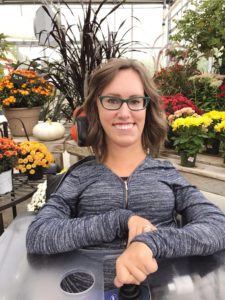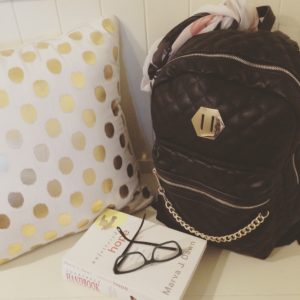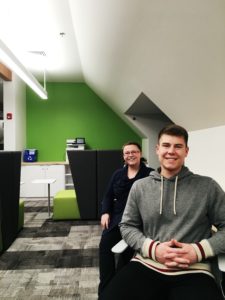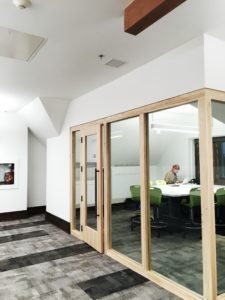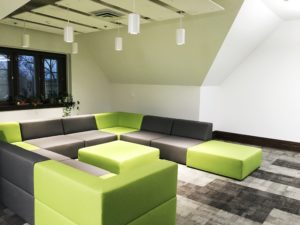Should I wear my lab coat on the first day? Is it alright that I haven’t memorised the periodic table of the elements? As I entered into my first year at CMU, these were some of the questions that crossed my mind. Little did I know that science is more than pristine white lab coats and a list of formulas to memorize, like I’d seen in Bill Nye videos in high school. Now after 3 years at CMU, my perception of science has shifted as I have experienced more of what science has to offer: I have explored the Assiniboine Forest, learned about health in Indigenous populations, and even met my prof’s pet parrot!

All CMU students are required to take at least two science classes throughout the degree they are pursuing. While you may think you’ll feel like a fish out of water in a university science course, it is less intimidating than the stereotypes make it out to be. Who knows, science courses may even surprise you! I hope that these five tips will help you navigate science courses and give you an inside scoop on what science is actually like in university.
1. There are no dumb questions.
This may sound like a cliché, but in science courses especially, questions will be your saving grace. I was talking with some of this year’s graduating science students, and they agreed that if they could go back in time, they would have asked more questions in their classes. My profs have always encouraged us to bring a healthy level of skepticism into every class and to question the nature of the material they present. Learning science is not about blindly accepting the information you are taught, but rather critically engaging with it.
2. Embrace the grey spaces.
When I was in high school, I used to tell people that science was my favourite subject because there was always a right and wrong answer. But I was certainly shocked when I learned that while parts of science can be objective, it can also be subjective as people work to improve understandings in science. I have come across many questions that people are still in the midst of researching and that do not yet have a clear answer. It is possible that in your science classes, you will also encounter these nuanced topics, or so-called “grey spaces”. While these spaces may be confusing and complex, don’t run from them because this is where the richest learning takes place.
3. Creativity isn’t only for art class.
A common misconception is that science is more procedural than creative. I used to think that creativity was one of my weaknesses and that this endeared me to the so-called predictable nature of science. But this is certainly not the case! Within science, creativity and imagination are used to generate hypotheses, make sense of observations and design experiments. In other words, all innovation within science is generated by creativity.
4. Memorization may not be your best friend.
I used to think that I had a photographic memory and that memorizing definitions from the back of the textbook was the best way to study for a test. Turns out that I unfortunately don’t have a photographic memory and science tests can’t be aced by reciting definitions (trust me, I know from experience). While the factual recall of content is often emphasized within science courses, I have learned that there is more value in viewing science as an investigative process. This leads to more complete understanding of a topic (and higher marks on tests).
5. Science goes beyond the four walls of the classroom.
If you aren’t pursuing a science degree, you may have the tendency to rid your mind of anything and everything science related after your final exam. But stop right there! You may be surprised to know that science has a significant impact on many aspects of your life. Since science is socially embedded, material from your science class can help you better interpret stories on the news, influence how you interact with the environment, and be useful as you investigate big questions about life. So please don’t isolate science to the four walls of the classroom, but take it with you when you leave!
As you venture into studying science in university, you have every reason to feel confident! I challenge you to be open to new opportunities and just like me, you might find that science classes have more to offer than you previously thought. As long as you don’t wear your lab coat on the first day of lectures or try to memorise the periodic table of the elements, you’ll be just fine.
Annika Loeppky is a third year Science student.



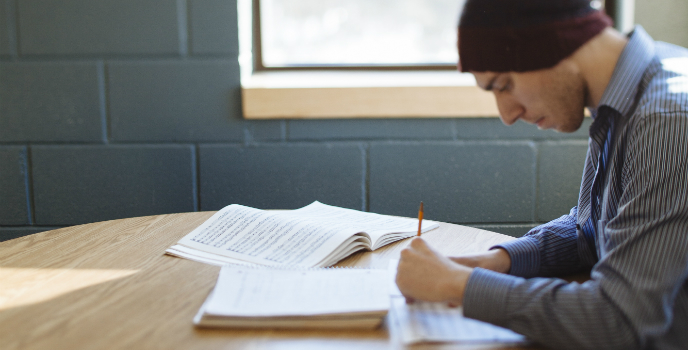 1. Have a point!
1. Have a point! 2. Uniqueness is key
2. Uniqueness is key 5. Cite reputable sources
5. Cite reputable sources